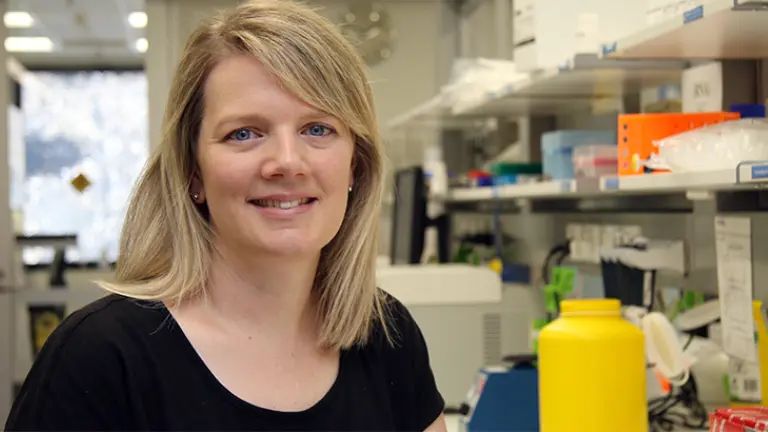
Each year, around 800 Australians undergo a kidney transplant operation and while a kidney transplant is a new lease on life for those who receive one, the risk of infection remains a major problem for patients due to the side effects of lifelong immunosuppressants needed to prevent organ rejection.
Each year, around 800 Australians undergo a kidney transplant operation and while a kidney transplant is a new lease on life for those who receive one, the risk of infection remains a major problem for patients due to the side effects of lifelong immunosuppressants needed to prevent organ rejection.
Dr Katie Baines, a researcher in HMRI’s Immune Health Research Program has been focused on research that looks at predicting individual risk of infection and better diagnostic tools to tailor immunosuppressive treatments to the individual patient, helping to balance the risks of infection and rejection.
Dr Baines says, “We currently have a focus on the infections experienced by kidney transplant recipients as this is a major problem for the patients. The lifelong immunosuppressants that the transplant recipients need to prevent rejection of the organ have unwanted side effects such as infections and cancer.
“We are working on biomarkers to better predict individual risk of infection and provide better diagnostic tools to tailor immunosuppressive treatments to the individual patient (tools to help balance the risks of infection and rejection).
“A particular infection of interest to us is BK virus as it can cause serious damage to the transplanted kidney. We are working on better ways to diagnose and recognise the damage of this infection early and distinguish it from rejection as it can have similar characteristics but needs different treatment approaches. The current approach to treatment is to lower immunosuppression, and this can potentially lead to rejection, so the balance is critical.
“We are also working to improve our understanding of the mechanisms of BK virus-associated nephropathy so that we can identify better treatment options. At present, there are no targeted treatments for this problem,” says Dr Baines.
Dr Baines and her colleagues recently identified a pattern of gene activity that characterise BK viral infection.
She says, “We have identified a pathway of interest that we will now follow up to investigate as a new treatment target. We are also currently successfully collecting some gene expression data on historical kidney biopsies with a new technology. This will greatly improve our knowledge of the immune responses involved in this problem in our local transplant population. This is a great value-add to our research locally and we are excited about the data coming off this, so stay tuned! We have optimised a technique that measures the expression of 770 genes in archived tissue and we have now run 48 samples. We just need more funds to keep it going!
“Our interest in understanding transplant tolerance also continues, as does understanding the immune responses in patients that can tolerate their new organ without rejection may also lead to strategies to avoid the need for lifelong immunosuppression and its consequences,” says Dr Baines.
Dr Katie Baines is a Hunter Transplant Research Foundation Fellow. You can support the work she does to help transform the health and wellbeing of renal transplant recipients by attending the 2nd annual Hunter Transplant Foundation Glow Walk, Sunday August 4 at Adamstown Bowling Club.
Find out more and register here